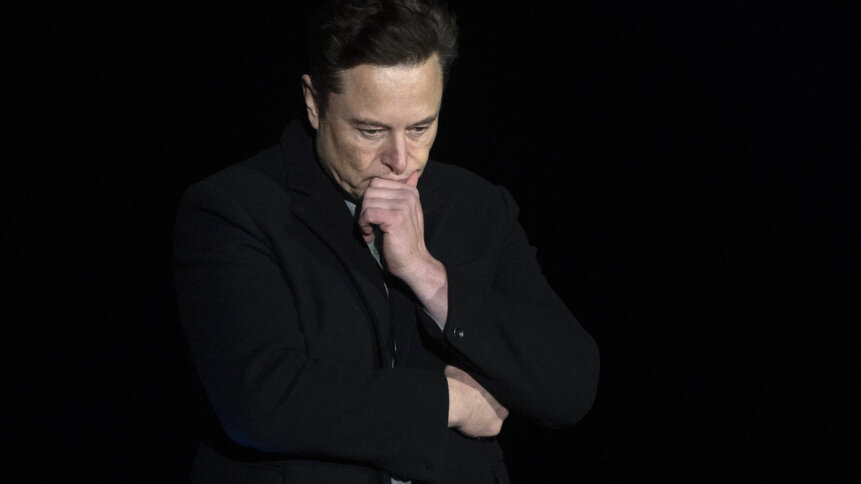Is there a plan behind the Twitter journalists ban?

|
Getting your Trinity Audio player ready...
|
It is widely, if questionably, said of Dorothy Parker that when the doorbell rang in her New York apartment, she would habitually greet the intrusion with the phrase “What fresh hell can this be?” In 2022, the tech business world has become the arena for such ejaculations, as we watch, agog, the unfolding machinations of Elon Musk, King of Twitter.
READ NEXT

Twitter: U OK HUN?
We’ve watched as he reneged on a deal to buy the platform, and had to be more or less dragged through the courts to make good on his word. We’ve watched as he fired swathes of the staff that made the platform actually work. Watched as he threatened those who remained that they would have to come into the office and prepare to work harder than ever before. Watched as the staff called his bluff and quit, leaving him to humiliatingly call them back and make nice – a little too little, a little too late.
We’ve watched as he brought back previously banned accounts, including those of proven racists, hate-speakers, conspiracy theorists, election deniers and others whose entire personalities are based around “owning the libs.” And then we’ve seen him act surprised when over a million “woke snowflakes” abandoned the platform for other, altogether more progressive platforms, like Mastodon.
We’ve seen him put the authenticity of accounts on the open market at $8 a throw for a blue tick that proves you’re the “official” version of whoever you say you are. We’ve seen the jesters of the internet have enormous fun flooding Twitter with fake but authenticated blue tick alternative Elon Musk profiles, and we’ve seen Musk then demand that all parody accounts must be clearly labelled “PARODY” to ensure people can tell they’re parodies.
We’ve watched as he – either cynically or cluelessly – took on Black Lives Matter, claiming that “’Hands up don’t shoot’ was made up. The whole thing was a fiction,” in regard to the shooting of Michael Brown in 2014 by police officer Darren Wilson, the incident that sparked the protests in Ferguson, Missouri.
Like dogs watching tennis, the technology press has watched all this (and the plummeting value of Twitter stock, the fleeing of advertisers, Musk’s complaints about the advertisers, a particular if halfhearted spat with Apple CEO Tim Cook, and more), baffled by the increasing dark whimsicality of a man who has a strong record of taking ideas from inception by others to full-scale marketability and often using them to change humanity’s day-to-day life.
And then he started banning journalists, which is to say, Twitter started suspending the accounts of journalists without warning.
The journalist-purge.
In the first place, Musk said he suspended the accounts – and these days, there’s little difference between a personal Musk edict and a Twitter action – because the journalists concerned had “doxxed” his plane. Doxxing is a practice in the internet age where private information about individuals is revealed publicly, with the consequence, but not necessarily the motive, that others can pinpoint them and potentially do them harm. Musk’s plane’s movements are, as they have to be, a matter of public record. So this is not, strictly, a case of doxxing.
Here’s the journalist-ban timeline, in case you’ve missed any of it:
- Musk pulls the accounts of a handful of journalists from some leading news organizations.
- News organizations and fans of free and fair speech bombard his account (and their own) with engagement on the story, free of charge.
- Musk launches a poll on Twitter to his followers, asking them how long the suspensions should stay in place. Significant engagement follows, from both fans and opponents.
- The response from Europe keeps the move alive in the news cycle again, see below.
- Musk tweets sardonically about the media “suddenly rediscovering” an interest in the freedom of speech. Engagement soars again, with fans and opponents piling on.
- Musk tweets enigmatically about a coming “coup de grace” – at least suggesting the whole thing has been orchestrated, rather than the action-retraction cycle with which we’re becoming familiar.
- Musk says he will reinstate the journalists’ accounts.
The law of the world.
Other issues arise from the journalist-purge, too. Where the whole “My house, my rules” effect comes unstuck though is that Twitter, like all social media platforms, is an international entity, and must obey all the jurisdictions in which it wants to operate. That became an immediate thorn in the wake of the journalist-purge, when Vera Jourova, Vice President of the European Commission, said it violated the EU’s Digital Services Act and the Media Freedom Act.
“There are red lines. And sanctions, soon,” she tweeted in response to the suspension of the journalists. The Digital Services Act is fresh enough that you can still smell the ink it was printed with, and it doesn’t actually come into effect until 2023, but when it exists, it will carry a fine of up to 6 percent of global revenues for breaking its rules – and that’s 6 percent Twitter badly needs to keep hold of right now.
The outrage engine.
Musk will probably abide by the DSA when it exists in force, precisely because he needs to make Twitter more economically viable than it’s been before. The only thing to have changed over the 48 hours of the journalists purge event is that literally millions of words have been written about Twitter, Elon Musk, freedom of speech, freedom of the press, rules, regulations, and access to what is perceived to be a right.
By doing something dramatic, and drip-feeding just enough additional fuel throughout the news cycle to get people and organizations to double- and triple-down on their engagement, Musk could well be turning a platform that liked to parade itself as “the world’s town square” into the world’s greatest outrage engine.
Because after all, if we know one thing about social media, it’s that outrage creates far more engagement than reason. Engagement equals interest. And for a platform struggling to find its way forward through a landscape of retreating advertisers, engagement-bombs like this news cycle of journalists losing their access could be just what the doctor ordered.










